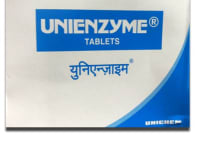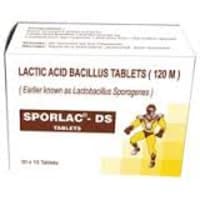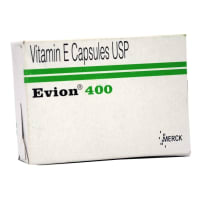USED FOR:
Bacterial infections
COMPOSITION:
Ampicillin (250mg)
Dicloxacillin (250mg)
Therapeutic Uses:
anti infectives

Interaction with alcohol is unknown. Please consult your doctor.

PROBABLY SAFE
Ampilox Paediatric 250 mg/250 mg Injection is probably safe to use during pregnancy.Animal studies have shown low or no adverse effect on the foetus, however, there are limited human studies. Please consult your doctor.

SAFE
Ampilox Paediatric 250 mg/250 mg Injection is safe to use during lactation. Human studies have shown that either the drug does not pass into the breastmilk in significant amount or is not expected to cause toxicity to the baby.

It is not known whether Ampilox Paediatric 250 mg/250 mg Injection alters the ability to drive. Do not drive if you experience any symptoms that affect your ability to concentrate and react.

CAUTION
Ampilox Paediatric 250 mg/250 mg Injection should be used with caution in patients with kidney disease. Dose adjustment of Ampilox Paediatric 250 mg/250 mg Injection may be needed. Please consult your doctor.

There is limited information available on the use of Ampilox Paediatric 250 mg/250 mg Injection in patients with liver disease. Please consult your doctor.
Uses of Ampicillin
Ampicillin is used in the treatment of bacterial infections.
How to use Ampicillin
Your doctor or nurse will give you this medicine. Kindly do not self administer.
How Ampilox Paediatric 250 mg/250 mg Injection works
Ampicillin is an antibiotic. It kills bacteria by preventing them from forming their own protective covering which is required for their survival in the human body.
Common Rash.
Expert advice for Ampicillin
Make sure you complete the course even if you start to feel better. It is better to take with food to avoid an upset stomach. Diarrhea may occur as a side effect but should stop when your course is complete. Inform your doctor if it doesn't stop or if you find blood in your stools. Discontinue Ampicillin and inform your doctor immediately if you get a rash, itchy skin, swelling of face and mouth, or have difficulty in breathing.
Q. Is ampicillin and amoxicillin the same?
Ampicillin and amoxicillin belongs to the same group of penicillin antibiotics, but differ slightly in their uses
Q. Is Ampicillin light-sensitive?
Yes, Ampicillin is light sensitive it should be kept away from sunlight
Q. Does Ampicillin cover anaerobes, listeria?
Ampicillin is used for infections caused by anaerobes and listeria. It is not typically used to treat chlamydia
Q. Is Ampicillin/Megapen a prodrug?
No, Ampicillin is not a prodrug
Q. Is Ampicillin a cephalosporin?
Ampicillin is not a cephalosporin
Q. Can I take Ampicillin for strep throat, tooth infection, sore throat, chlamydial and bacterial vaginitis?
Ampicillin can be used to treat strep throat, tooth infection, sore throat, bacterial vaginitis
Q. Can I take Ampicillin with Advil (ibuprofen), Tylenol (paracetamol) and Benadryl?
Ampicillin can be taken with paracetamol and Benadryl. Ampicillin when taken with ibuprofen may increase the effects of either drug.
Uses of Dicloxacillin
Dicloxacillin is used in the treatment of bacterial infections.
How to use Dicloxacillin
Your doctor or nurse will give you this medicine. Kindly do not self administer.
How Ampilox Paediatric 250 mg/250 mg Injection works
Dicloxacillin is an antibiotic. It kills bacteria by preventing them from forming their own protective covering which is required for their survival in the human body.
Common Nausea, Allergic reaction, Diarrhoea, Vomiting.
Expert advice for Dicloxacillin
Make sure you complete the course even if you start to feel better. It is better to take with food to avoid an upset stomach. Diarrhea may occur as a side effect but should stop when your course is complete. Inform your doctor if it doesn't stop or if you find blood in your stools. Discontinue Dicloxacillin and inform your doctor immediately if you get a rash, itchy skin, swelling of face and mouth, or have difficulty in breathing.
Q. Is dicloxacillin a penicillin, tetracycline or a broad spectrum antibiotic?
Dicloxacillin belongs to class of medicines called penicillin antibiotics. Dicloxacillin is not a tetracycline or a broad spectrum antibiotic
Q. Does it contain sulfa?
It does not contain sulfa
Q. Is dicloxacillin used to treat sexually transmitted disease, strep throat, and methicillin resistant Staphylococcus aureus (MRSA)?
Dicloxacillin can be used to treat strep throat. It is not approved to treat sexually transmitted diseases and is not active against MRSA
Q. Is dicloxacillin the same as amoxicillin?
Dicloxacillin and amoxicillin belongs to same category of drugs with similar action, dicloxacillin is resistant to beta-lactamase producing organism, while amoxicillin is susceptible to degradation by beta-lactamase producing organism
Q. Can I take dicloxacillin with Tylenol, Advil, Benadryl, and Tums?
Dicloxacillin can be taken with Tylenol, Benadryl and Tums. Dicloxacillin when taken with Advil (ibuprofen) may increase the effects of either dicloxacillin or ibuprofen
Q. Does dicloxacillin decrease milk supply?
Generally, dicloxacillin does not decrease milk secretion
Q. Does dicloxacillin cause heartburn?
It may cause heartburn.


 Ampilox Paediatric 250 mg/250 mg Injection
Ampilox Paediatric 250 mg/250 mg Injection  Bookmark
Bookmark





















